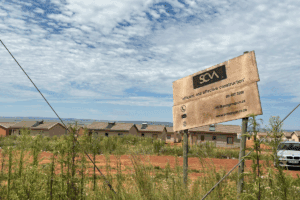Some say SA could be broke in five years' time if drastic measures aren't taken, while others think such warnings are premature.

The Fiscal Cliff Study Group’s prediction that South Africa will run out of money by 2042 if measures are not taken by the government has caused a stir among experts, who differ in opinion.
The head of the group, Professor Jannie Rossouw, told parliament that the country’s economic position had declined significantly since last year’s budget.
He stated that if the government did not reduce its expenditure on civil service salaries, social grant payments, government debt and other expenses, and continued managing the country the way they did, SA would be on its way to being broke by 2042.
The University of the Free State’s professor Philippe Burger warned that people should be careful not to make such predictions, assuming nothing will be done about it in the future.
He said it was not right to express such sentiments based on the medium-run developments, as several administrations would have taken over and taken the necessary measures to deal with these issues, over time.
He said: “The problem with these assumptions and forward projections is that they could be very unrealistic.
“The future administrations would have made changes long before we reach 2042, and even now we have a new administration in power, we are seeing differences. I don’t think we will run out of money, they are just reading too much into the future.”
Economist Chris Hart predicted the opposite, saying with the current issues facing SA due to the thinking of policymakers, the country would reach a fiscal cliff a lot sooner.
“If there is no new thinking from policymakers and they do not define problems and discuss solutions to them in time, South Africa will reach the fiscal cliff in four to five years.
“Only then will the government be forced to take action, like cut back on expenditure, which is currently growing at a higher rate than its revenue.”
He said there were four factors that would accelerate the county’s movement towards the crisis.
Firstly, the state-owned salary bill “where the government already budgeted that it would grow faster than the economy”. Secondly, state-owned enterprises that were not only overstaffed but undercapitalised. Thirdly, national health insurance, where there is also a lack of funding. And, lastly, expropriation of land without compensation which, in his opinion, would not help the country’s economy at all.
“These are just the factors that are in the government’s control and not external international issues that we cannot deal with.
“If the government does not deal with these four factors we will be headed for the fiscal cliff sooner than we expect,” he said.
For more news your way, download The Citizen’s app for iOS and Android.






